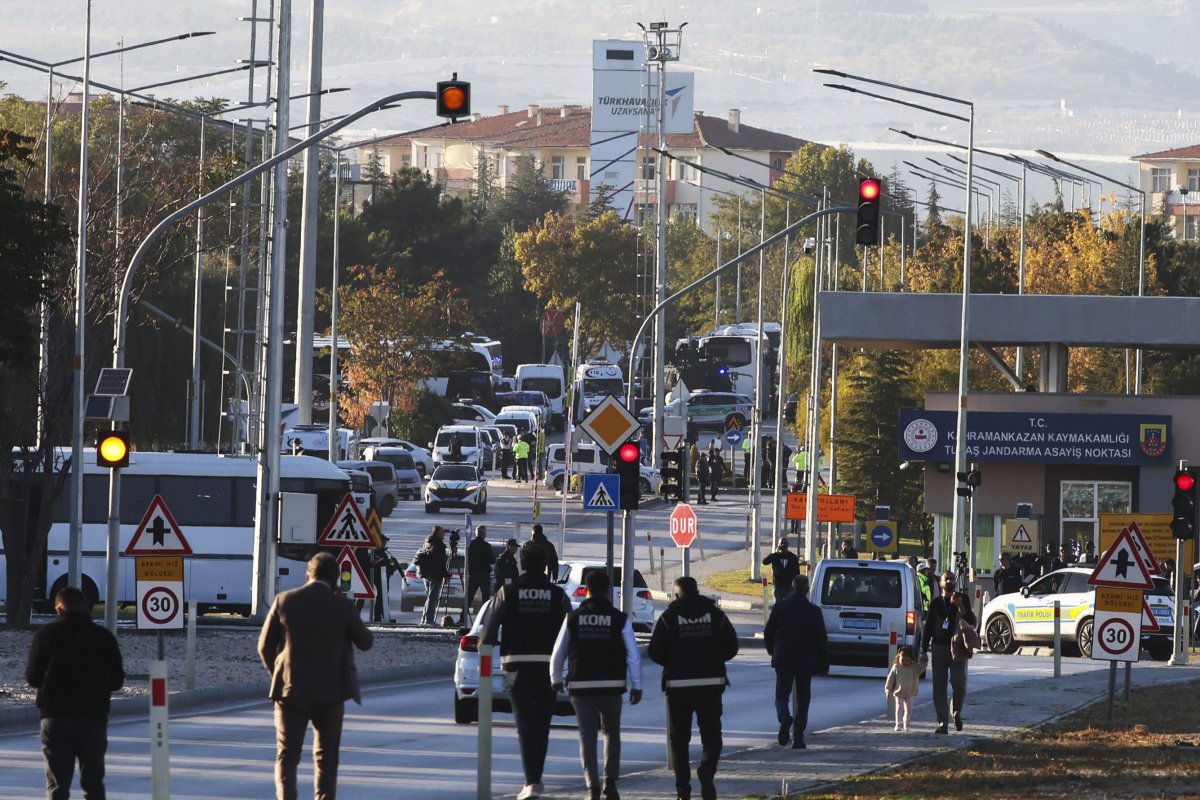A recent attack on the headquarters of a prominent defense company in the Turkish capital of Ankara has brought the Kurdistan Workers’ Party, or PKK, back into focus.
The outlawed Kurdish militant group claimed responsibility Friday for a deadly attack in Ankara that took at least five lives and injured more than 20 at the Turkish Aerospace Industries (TUSAS) premises.
A pair of operatives, described as members of the PKK’s “Immortal Battalion,” targeted the area, killing five people and injuring over 20, according to Turkish Interior Minister Ali Yerlikaya.
The two assailants, a man and a woman, commandeered a taxi to reach the TUSAS complex, where they detonated explosives and engaged security forces.
The woman reportedly took her own life with an explosive after sustaining injuries, while the man threw hand grenades before detonating in a nearby building, Yerlikaya said.
President Recep Tayyip Erdogan, speaking later at a defense industry event in Istanbul, condemned the attackers as “scoundrels,” stating, “We will continue to crush those who think they can make us step back with such treachery.”
Yavuz Ozden/DIA Photo via AP
What Is the PKK and Why Is There Strife in Turkey?
Turkey has been in conflict with the PKK since 1984, when the group launched an armed insurgency for greater autonomy and rights for Kurds in southeastern Turkey.
Labeled as a terrorist organization by Turkey, the United States and the European Union, the group argues its latest attack was in response to “massacres” by Turkish forces in Kurdish regions.
Its target, TUSAS, a key part of Turkey’s defense industry, produces military and civilian aircraft as well as drones, which have been critical in the country’s operations against Kurdish forces.
In a statement following the attack, the PKK accused TUSAS of manufacturing weapons that “killed thousands of civilians, including children and women, in Kurdistan.”

Yavuz Ozden/Dia Photo via AP
Turkey’s List of Counterattack Targets
Turkey quickly retaliated with a wave of airstrikes on PKK-linked sites in northern Iraq, including tunnels, bases and storage depots, according to Turkish state-run news outlet Anadolu Agency.
Citing Turkish defense officials, the agency reported that 34 PKK-related targets were destroyed. Further strikes targeted the Kurdish-led Syrian Democratic Forces (SDF) in northern Syria, which Turkey has long suspected of PKK affiliation.
The SDF countered that the strikes killed at least 12 civilians, describing targets as “bakeries, a power station, and local police checkpoints.”
In Sinjar, northern Iraq, an Iraqi security official confirmed the Turkish strikes also killed five Yazidis. The official spoke on condition of anonymity.

Simona Granati/Corbis via Getty Images
Far-Right Nationalist Head Demands Öcalan Denouncement
This latest escalation comes amid tentative efforts at dialogue aimed at ending a conflict now in its fifth decade.
Devlet Bahceli, leader of Turkey’s far-right nationalist party, the Nationalist Movement Party, recently suggested that PKK leader Abdullah Öcalan, imprisoned for life, could be granted parole if he renounces violence and disbands the organization. Öcalan, held on a prison island near Istanbul, has since conveyed a willingness to “work for peace,” his nephew relayed.
Although Öcalan has been imprisoned in Turkey since 1999, he remains a symbolic leader.
The PKK’s military wing, the People’s Defense Center, however, insisted the attack on TUSAS was not linked to any “political agenda” and had been planned well in advance.
The Turkish government responded by ramping up domestic security operations, with the Interior Ministry announcing the detention of 176 PKK suspects across the country.
This article includes reporting from the Associated Press
